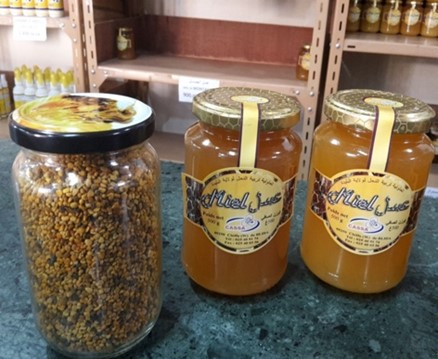The National Association of Professional Beekeepers (ANAP) has taken the initiative to professionalize the beekeeping sector in Algeria. It focuses on the genetic improvement of local bee populations and their adaptation to climate change. The aim is to increase bees’ resilience to growing environmental challenges, improve the quality of beekeeping products, and ensure that local bees can adapt to ongoing climate change.
With the support of the FO4ACP Program, ANAP has developed a four-year strategic plan for sustainability that includes cleaning up and safeguarding local bee populations, strengthening the relationship between the profession and scientific research, and improving the genetics and production of honey and other bee products. The results of these efforts are encouraging, with the development of a selection plan, establishing a varroa mite monitoring and control network, and improvements in honey quality and production practices.
However, ANAP and Algerian beekeeping, in general, face several challenges, including the uncontrolled introduction of foreign queens, which leads to hybridization and threatens the genetic diversity of local bees. Therefore, it is important to implement conservation measures to protect local bee ecotypes and invest in potential adaptations to local conditions.
ANAP plays a crucial role in the professionalization of beekeeping in Algeria by focusing on the genetic improvement of local bee populations and their adaptation to climate change. The results of these efforts are encouraging, but it is important to address the challenges that threaten the genetic diversity of local bees and to implement conservation measures to protect these precious resources.

